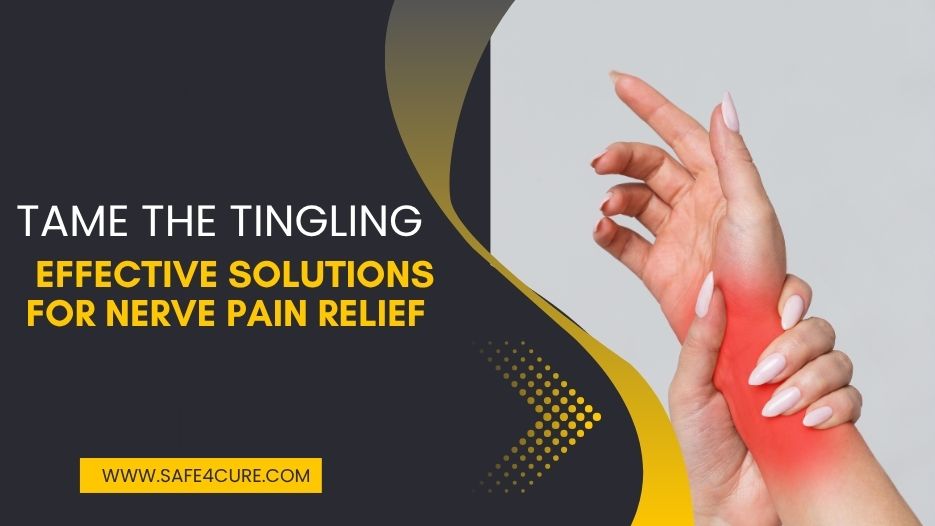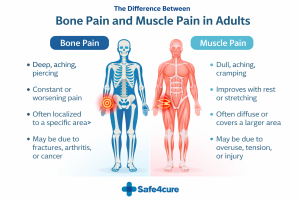Peripheral nerve pain can impact anyone, but women often experience distinct challenges in getting an accurate diagnosis, effective treatment, and lasting relief. From burning sensations and tingling to numbness and chronic shooting pain, this type of nerve-related discomfort can seriously disrupt sleep, mobility, and overall well-being. For many women especially those with diabetes or autoimmune conditions managing peripheral nerves conditions is a constant concern.
This blog takes a closer look at the unique aspects of peripheral nerve pain in women, exploring its causes, common symptoms, treatment options, and essential steps for relief. We’ll also highlight the role of peripheral neuropathy nerve pain medication in improving quality of life and restoring daily function.
Understanding Peripheral Nerve Pain in Women
Peripheral nerve pain also called peripheral neuropathy occurs when nerves outside the brain and spinal cord are damaged. These nerves are responsible for communication between your central nervous system and the rest of your body. When they malfunction, it can result in extreme nerve pain, muscle weakness, or unusual sensations.
In women, hormonal shifts, autoimmune conditions like lupus, and metabolic disorders like diabetes can make peripheral nerves more vulnerable. Unlike general chronic pain, chronic pain nerve symptoms may not always be visible or easily diagnosable, adding an extra layer of frustration to female patients’ healthcare journeys.
Common Causes of Peripheral Nerve Pain in Women
Understanding the cause of nerve pain is essential for effective treatment. Here are some primary factors:
- Diabetes: One of the leading causes, especially diabetic neuropathy, damages peripheral nerves due to high blood sugar levels.
- Autoimmune Disorders: Conditions like rheumatoid arthritis or lupus can trigger inflammation in peripheral nerves.
- Hormonal Imbalances: Menopause and thyroid issues can alter nerve function.
- Vitamin Deficiencies: Lack of B vitamins is linked to nerve pain disease and nerve degeneration.
- Injury or Trauma: Physical damage to nerves can result in peripheral nerve pain.
Recognizing Nerve Pain Symptoms
Women experiencing peripheral nerve pain might report:
- Burning or stabbing sensations
- Pins-and-needles or tingling
- Numbness, especially in hands or feet
- Sensitivity to touch
- Weakness or coordination issues
If these nerve pain symptoms persist, it’s crucial to consult a neurologist for diagnosis and begin early nerve pain treatment.
Peripheral Nerve Pain Relief and Treatment Options
Managing peripheral nerve pain relief involves a comprehensive, tailored approach. Effective strategies may include:
1. Medications
- Peripheral neuropathy nerve pain medication includes anticonvulsants (like gabapentin), antidepressants (amitriptyline), and topical treatments.
- Nerve pain management often requires combining medication with lifestyle modifications.
2. Lifestyle Changes
- Exercise, healthy diet, and blood sugar control are especially vital in treating diabetic neuropathy.
- Quit smoking and limit alcohol, both of which can worsen nerve pain disease.
3. Complementary Therapies
- Acupuncture, massage therapy, and yoga can help reduce chronic pain nerve levels.
- Physical therapy is often used to restore function and mobility.
4. Advanced Treatments
- Nerve blocks or TENS (Transcutaneous Electrical Nerve Stimulation)
- For severe cases, surgery may be considered if nerve compression is involved.
Precautions for Women Living with Nerve Pain
Taking proactive steps is essential for long-term nerve pain management:
- Routine Checkups: Regular nerve function assessments are vital, especially for diabetic women.
- Foot Care: Inspect feet daily if you have diabetes to avoid complications from unnoticed injuries.
- Nutrition: Ensure adequate intake of B-complex vitamins and Omega-3 fatty acids.
- Manage Stress: Emotional well-being significantly influences how women experience and cope with nerve pain symptoms.
Frequently Asked Questions (FAQs)
Q1. Is nerve pain more common in women?
Yes, studies suggest women may be more prone to developing chronic pain, including peripheral nerve pain, due to hormonal and autoimmune factors.
Q2. How is diabetic neuropathy treated in women?
How to treat diabetic neuropathy includes strict blood sugar control, medications for pain relief, lifestyle changes, and foot care to prevent complications.
Q3. Can nerve pain be cured?
While nerve pain treatment can reduce or manage symptoms, some causes (like diabetes) are chronic. Early intervention can prevent worsening.
Q4. What are signs that my nerve pain is getting worse?
Increased numbness, inability to feel hot/cold, worsening pain, or muscle weakness may indicate worsening peripheral nerves conditions.
Q5. Are there medications specifically for women with nerve pain?
While medications aren’t gender-specific, a personalized plan considering hormonal and reproductive health is often more effective.






